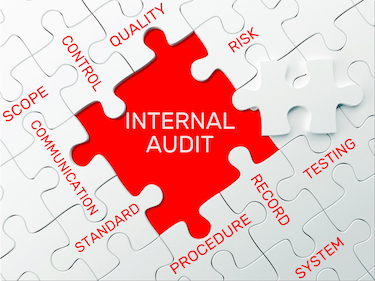Corporate records are integral to successful governance and compliance. Within most organizations, the company secretary, legal operations and governance and compliance teams act as the keepers of the corporate record, protecting both the company’s operations and its reputation.
Yet what, exactly, are corporate records? Why are they so important? And why does the upkeep of accurate corporate records occupy so much of senior stakeholders’ time?
In this article, we’ll explore the elements of the corporate record, examine why it is important and how it is accessed and maintained, and delve into how modern entity management solutions help to keep the corporate record both secure and accessible.
What are corporate records?
Corporate records are the records required by a U.S. corporation to demonstrate that it is functioning in adherence to the rules of the Inland Revenue Service (IRS) and in accordance with the laws of the state in which the business entity is incorporated.
Put simply, corporate records serve as the official log of the company’s decisions and actions.
Corporate records must include a copy of the articles of association and company bylaws, the minutes of all shareholder and director meetings, as well as a stock register for keeping track of stock transactions, if applicable. The records should be held in a single, central place and be easily available in the event that regulators come to audit the corporation.
Traditionally maintained as a physical record book, the majority of corporations now maintain their corporate records digitally on a local network server and/or within a cloud-based system.
Who is responsible for maintaining corporate records?
The job of maintaining corporate records tends to fall to the company secretary, who will typically be present at board meetings and will be responsible for noting attendance, recording and distributing the meeting’s minutes as well as following through with all necessary documentation and agreed action points.
While the company secretary tends to have primary responsibility for corporate records, those responsible for governance and compliance within an organization – including the legal operations team – must also ensure that corporate records are carefully maintained.
Corporate records must be kept, in strict accordance to local laws, so that the company, its shareholders and its Board members, remain protected.
Why are corporate records necessary?
Corporate records show that the corporation is functioning appropriately as required by local regulation. They demonstrate that it is a separate entity with its own governance processes and help to maintain the “corporate shield” – that is, keeping the legal entity separate from its owners in terms of liabilities. This means that, for example, any creditors cannot go after shareholders’ personal assets in the event of corporate distress.
As soon as an entity is legally incorporated in any jurisdiction, it creates a corporate record. The majority of jurisdictions require that an entity holds documentation such as articles of association and annual reports, that it holds regular board meetings and that these meetings are recorded and minuted.
Corporate records help to show regulators that this is a healthy, functioning and viable entity.
Corporate records must be signed and recorded, and any actions taken must be backed up with documentation that is also stored with the corporate record.
What do corporate records include?
Corporate records include the articles of association, company bylaws and other incorporation documents. In addition, the corporate records also include the policies and resolutions made and agreed by the Board. The corporate record is not static; it is in a state of constant evaluation and growth.
Corporate resolutions can be made on many matters, including:
- Records of major transactions
- Approvals of contracts
- Records of sale or purchase of real estate
- Hiring or layoffs of large numbers of employees
- Expansion into a new market or new location.
All of these decisions, and in many cases more, must be recorded by the company secretary and entered into the corporate record, alongside annual reports, corporate business and tax dealings, stock dividends and director conflict-of-interest resolutions.
What role do corporate records play in organizations?
The corporate record acts as essential protection for company owners and shareholders against lawsuits and creditors. Accurate, up-to-date corporate records help to safeguard against sanctions from tax and regulatory authorities – it’s the entity’s way of showing that it is operating according to the law, that its processes are transparent and that all regulatory matters are taken care of.
Given its importance, it is essential that those placed in charge of the entity or group structure should demand not only that proper corporate records are kept, but that they are maintained and stored in the best possible manner.
Storage of corporate records
The constant movement and evolution of the corporate record makes the job of its storage and maintenance an important one.
Not only does the company secretary need to be able to access the corporate record to add and amend the documentation as necessary, but other key stakeholders may also need access to read, edit or update documentation on occasion.
It is this access need, and the progressively global and interconnected nature of business, that makes the days of physical corporate records, stored in filing cabinets, increasingly obsolete. Company secretaries and legal operations teams are choosing to embrace technological storage solutions to make the corporate record fit for modern governance.
Secure, cloud-based storage is increasingly become the preferred route for many organizations.
Cloud-based corporate records
Many company secretaries and legal operations teams are now turning to technology to solve the challenge of secure yet accessible storage of the corporate record.
Entity management software provides a secure, cloud-based space to store entity information, documents and organizational charts, creating a single source of truth for the corporate record. Company secretaries and those working in governance and compliance can manage the ongoing accuracy of the corporate record using compliance calendars, reminders and workflows for better data, and they can report on regulatory requirements and electronically file statutory forms to global regulatory bodies.
Diligent’s entity management software provides company secretaries with a system that can also seamlessly integrate with the board portal, allowing the sharing of data between the board and entities to mitigate data transfer risks and the risk of human error creeping into the corporate record. Entity data can be accessed from anywhere, by anyone authorized to do so, when needed – eliminating requests into the company secretary and allowing the focus to be squarely placed back on strategic governance.
Get in touch and schedule a demo to discover how Diligent’s entity management software and Governance Cloud solution can help to protect and maintain the corporate record, putting the right information in the hands of the right people at the right time.





